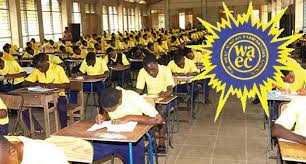The Federal Ministry of Education has clarified that students below the age of 18 are not barred from taking the West Africa Senior School Certificate Examination (WASSCE) and the National Examinations Council (NECO) exams.
This statement was made by the Minister of State for Education, Dr. Yusuf Sununu, during a press briefing in Abuja on Friday, coinciding with the 2024 International Literacy Day celebrations.
Dr. Sununu addressed the confusion surrounding recent comments made by the Minister of Education, Prof. Tahir Mamman, stating that the public had misinterpreted the remarks. “The misconception and misrepresentation of what was said by the Minister of Education is highly disappointing,” Sununu remarked.
READ ALSO: NECO, WAEC Candidates Below 18 Years Age Limit Remain Banned – FG
He clarified that Prof. Mamman’s comments were specifically about the minimum age of 18 for entry into tertiary institutions, a standard that aligns with the 6:3:3:4 education system in Nigeria. Sununu expressed concern over reports that some universities in the country were admitting students as young as 10, 11, and 12 years old, which he deemed “totally wrong.”
“We are not saying that there are no exceptions,” Sununu said, acknowledging that some exceptionally talented students might be ready for higher education at an earlier age. However, he emphasized the need for a standard rule, adding that the ministry is working on developing guidelines to identify such talented children to avoid unfairly limiting their educational opportunities.
Sununu stressed that the ministry’s stance does not affect the eligibility of students under 18 years old to sit for national exams like WAEC and NECO. “Nobody said no child will write WAEC, NECO, or any other examination unless at age 18. This is a misconception and misrepresentation of what we have said,” he asserted.
READ ALSO: Kano Residents Lament Fuel Price Hike, Rising Poverty
In his remarks on International Literacy Day, Sununu highlighted the importance of literacy in promoting mutual understanding, peace, and socio-economic development. He reaffirmed the Federal Government’s commitment to tackling literacy challenges through the Education for Renewed Hope roadmap (2024-2027). This roadmap includes a focus on youth and adult literacy and emphasizes the use of mother tongues as a medium of instruction.
“We must focus on the role of a learner’s first language in becoming literate, which will foster mutual understanding and peace,” Sununu said, underscoring the need for well-trained educators capable of teaching in local languages and the development of reading materials in these languages.
Also speaking at the event, the Executive Secretary of the National Commission for Mass Literacy, Adult, and Non-formal Education, Prof. Simon Akpama, emphasized the importance of integrating multilingual education into literacy programs. “In an increasingly interconnected world, multilingual education is not just a necessity; it is a tool for fostering peace and cultural respect,” Akpama stated.
READ ALSO: How Bandits Kidnapped My Relatives, Feed Driver to Dogs—cleric revealed
UNESCO’s Country Representative, Mr. Diallo Abdourahamane, echoed these sentiments, asserting that literacy remains a fundamental human right and is crucial for creating a just, peaceful, and sustainable society.
The News Agency of Nigeria (NAN) reports that International Literacy Day, celebrated annually on September 8, aims to underscore the importance of literacy to individuals, communities, and societies. The theme for this year’s celebration is “Promoting Multilingual Education: Literacy for Mutual Understanding and Peace.”
